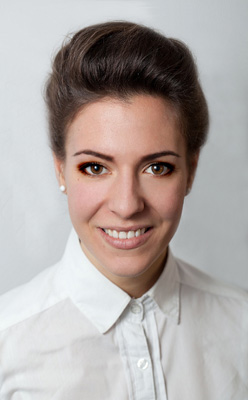
Zuzana Piptova-Vrabchev was born in Bratislava, Slovakia, where she graduated the Bulgarian high school. She came to this country under the Erasmus programme and she did some of her SEE surveys with the Sofia University. Zuzana has been living in Bulgaria for 6 years now and at the moment she is manager of one of the three largest Slovak companies here, each one working in a different sphere. Why do Slovak companies opt for Bulgaria in terms of outsourcing? Here is what Zuzana says:
 “Luckily, the Bulgarian market or at least certain business spheres are monitored by an international audience. That is why the country tops the rankings of the most interesting ones in the sector of outsourcing. For instance, the latest Gartner report from February says that Bulgaria is one of the places which are stable, as far as policy and economics are concerned. The British outsourcing association said end-2015 that Bulgaria was the best outsourcing destination for the year. The sphere still sees its alignment. The EU expansion of 2004 caused the pulling of such companies from West Europe to Slovakia and the Czech Republic and after the 2007 accession of Romania and Bulgaria the search process of a more interesting business environment has continued in this direction. Bulgaria disposes of really well-prepared multi-lingual HR resources. BASSCOM says that the IT sphere is among the most quickly growing sectors here and the Bulgarian Outsourcing Organization claims that outsourcing today contributes with nearly 4 percent to the GDP of this country.”
“Luckily, the Bulgarian market or at least certain business spheres are monitored by an international audience. That is why the country tops the rankings of the most interesting ones in the sector of outsourcing. For instance, the latest Gartner report from February says that Bulgaria is one of the places which are stable, as far as policy and economics are concerned. The British outsourcing association said end-2015 that Bulgaria was the best outsourcing destination for the year. The sphere still sees its alignment. The EU expansion of 2004 caused the pulling of such companies from West Europe to Slovakia and the Czech Republic and after the 2007 accession of Romania and Bulgaria the search process of a more interesting business environment has continued in this direction. Bulgaria disposes of really well-prepared multi-lingual HR resources. BASSCOM says that the IT sphere is among the most quickly growing sectors here and the Bulgarian Outsourcing Organization claims that outsourcing today contributes with nearly 4 percent to the GDP of this country.”
Which Slovak projects could serve as an example for the Bulgarian institutions?
https://www.youtube.com/watch?v=2uGqlLOYXPI
“The e-governing has been a hot topic here for a while and Slovakia offers really interesting solutions. For instance, the Mobile Police project of the interior ministry and also Voice Biometry, working for the private sector in the bank services’ sector. The Mobile Police has been restoring the trust of the society for three years, providing an opportunity to police officers to fulfill their duties in a more professional manner, as their administrative field work is reduced to the minimum. The constant online video and sound control and the archiving of the whole workday of the mobile police units reduce the chances for corruption. The system allows direct connection with the national and Schengen databases, as well as the one of Interpol. A scanner of registration plates works in a mobile manner even through the night. Seven stolen cars were nabbed yet over the initial months of the project’s implementation.
Voice Biometry is a part of a group of biometric data, but with quite a few more biometric elements, compared to fingerprints. This makes it a much safer tool for exact identification. Just like fingerprints or eyes any voice is unique. Now computers can hear, archive and recognize our speech.This is a huge breakthrough with serious implementation across different areas – from state institutions to the private sector, including the bank one. Voice recognition takes no more than 20 seconds and not the current more than 2 minutes of dull questions and PIN codes. The most important thing: even if we have forgotten our password, the voice is still recognizable, it can’t be stolen.”
Administrators and first level technical support, experts in economy, project managers, IT architects and engineers – these are the most wanted men and women by Slovak companies now. President Andrey Kiska attended the opening of the Sofia Tech Park end-2015 with some 40-member delegation of Slovak entrepreneurs, scientific and educational circles’ representatives. That was the initial important step towards new Slovak investments into Bulgaria’s potential.